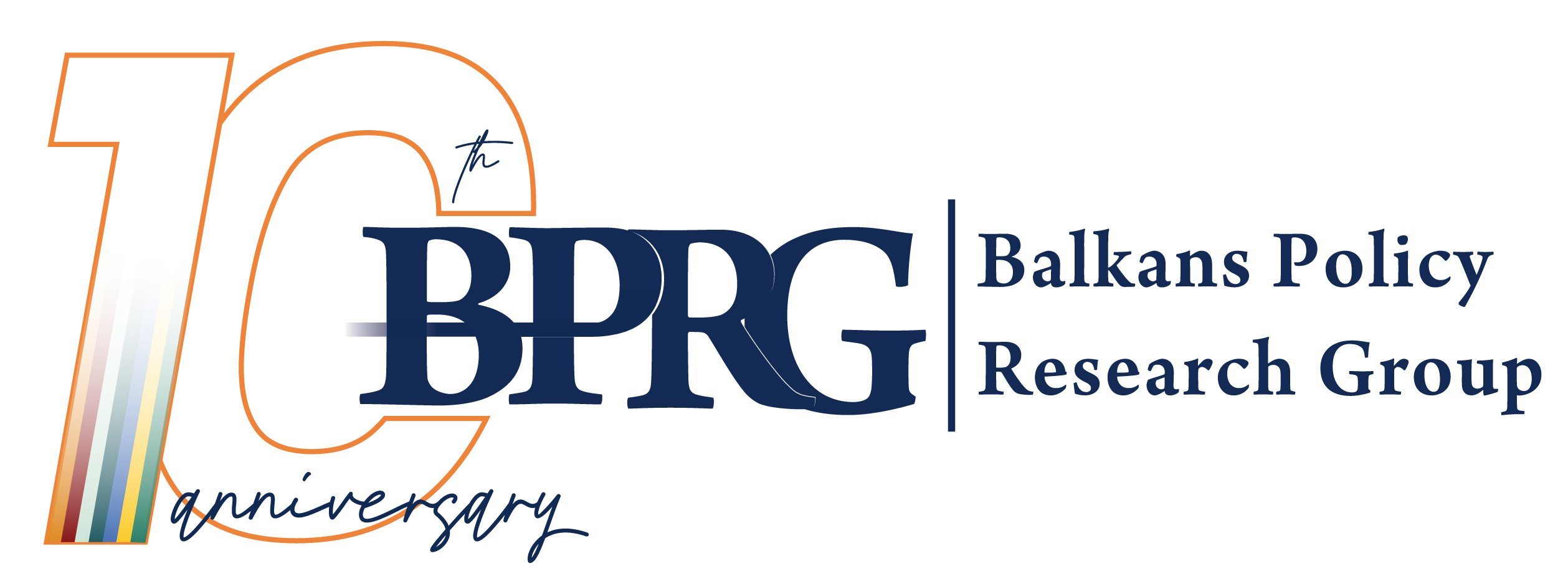20-23 November 2020 – Balkans Group organised the second round of training, as part of the “Youth in Politics” 2020 education program. This training on new policy areas and skills was organised as a follow-up to the first round of training which was held in September 2020. The first cohort of participants had a unique opportunity to gain additional knowledge and skills through new modules on Good Governance and Rule of Law, Health and Social Policy and EU Integration, Youth engagement during COVID-19, Advocacy tools for youth participation.
In addition, participants were provided expertise and engaged in interactive activities in developing skills in the policy-cycle, conceptualizing and delivering policy briefs, and negotiation and dialogue simulation.
As part of the project goal, Balkans Group brought together members of youth forums from all political parties virtually, through an intensive multi-day training program with interactive lectures and group work. The training encouraged structured debate along with academic and practical knowledge learned, while also requiring participants to work in politically diverse groups in order to tackle pragmatic policy problems.
Students engaged in analytical debates on questions of Good Governance and Rule of Law and in Kosovo. Through setting the foundations of Good Governance and Rule of Law, the first module required participants to engage with contending definitions of equality, discrimination, and rights. In addition to the lecture on key principles of Good Governance and Rule of Law, and their contextual value in Kosovo, youth participants had an opportunity to gain a pragmatic understanding of evidence-based decision-making through practical examples of the policy-making cycle.
Students were also introduced to key issues related to Health and Social Policy and as a separate topic to the EU Integration processes. In the health policy module, participants were introduced to international and domestic standards related to healthcare through analysis of comparative benchmarks set out by the World Health Organisation (WHO). In order to provide participants with a more practical hands-on experience on Health Policy, they were taught to the underlying principles and approaches in order to design policy briefs targeted at examining policies.
Youth participants were presented with a complete and process-driven overview of EU Integration. The module offered a sound empirical examination of the overarching EU treaties, dynamics and relationships of key EU institutions and the Stabilisation Association Process (SAP). Having been equipped with key concepts and mechanisms of the EU integration process, participants were then asked to use their newly founded knowledge in a simulated dialogue and negotiation activity.
In addition to the three in-depth modules, the OSCE also invited two lecturers to provide participants with a better view on the practical implications of the issues they discussed. One of the topics discussed was the engagement of young people during Covid-19 – How did it affect youth? Opportunities for youth during Covid-19 and practice examples from around the world. The discussion was held in an interactive way where at the end the students presented in groups.
The “Youth in Politics” training program is part of the multi-pillar project “Advancing Kosovo’s Institutions, Democratisation, and Regional Cooperation”. The education program seeks to offer young individuals and members of political parties throughout Kosovo a chance to develop a practical toolkit to help them overcome some of the most critical hurdles to their progressing career.
The project is funded by the Royal Norwegian Embassy in Pristina.



